Nuclear energy just not natural for SA
by Geoff Davies,
2016-02-08 06:02:16.0
THE Cabinet has endorsed nuclear power, and now the governing party’s secretary-general, Gwede Mantashe, has stated that those who claim SA cannot afford it are "mischievous". Surely, he is missing the point? It is not only a question of whether nuclear energy is affordable, but whether it is right for our nation and planet.
The country clearly cannot afford it, but even if we could, is it good for us? Like smoking, you might think you can afford and enjoy it, but in the long run, it is deadly.
The facts speak for themselves: we need electricity now; nuclear energy can’t provide this, but renewable energy can — at far less cost.
Mantashe’s claim that investing in nuclear now will benefit future generations is also alarming. In 10 years’ time, we will have seen such advances in renewables, funded by private initiative, that nuclear plants will be costly white elephants.
Our children will want to know how we could have misspent so much money, never mind the destruction to land, water and human health caused by uranium mining.
After 60 years, we have still not solved the problem of long-term storage of nuclear waste. The South African Nuclear Energy Corporation now claims it cannot take on the full burden of decommissioning and decontaminating used nuclear material. If the nuclear industry is not responsible, who is? The government? That means us, the taxpayers. The nuclear industry will rake in the profits, while we have to pay for its hazardous waste. The real legacy we will leave is radioactive waste, which cannot be disposed of safely and lasts for thousands of years.
Mantashe also says we don’t speak about the cost of coal. If he met with us, he would know we do indeed — so much so that 67 South African civic organisations opposed the World Bank loan for the Medupi coal-powered station in 2010.
We were accused of being unpatriotic, but the cost of coal is prohibitive in terms of human and planetary health. Neither we nor the planet can afford nuclear or new coal. We can flourish with renewable electricity. Nuclear energy and uranium and coal fuel costs will continue to rise considerably. The costs of renewable installations will continue to fall, with no fuel costs involved thereafter.
In 2011, Italy installed 9GW of rooftop generation in one year, the equivalent of our nuclear ambition, which will take at least 10 years. Had Eskom listened to us and opened up to renewables then, we would not be facing energy shortages now.
We also know that since the Department of Energy launched its renewable-energy programme, wind prices have reduced by half and solar by three-quarters, while new nuclear will cost twice as much per kilowatt-hour.
China’s major energy investment is now in renewables. In Germany, nuclear energy employs 12,000 people, while renewables are employing in excess of 370,000.
We could become a renewables hub for Africa, employing thousands of people in manufacturing and installation. After construction, jobs in the nuclear industry will number a few hundred. Nuclear energy simply does not make sense for SA, with the best of solar and wind resources in the world.
Coming from the faith communities, we believe in the essential goodness of people. We also see the tendency — worldwide — to accrue riches even if this is by underhand methods. We know a deal of this magnitude offers boundless opportunities for corruption. A few of those in power stand to gain immense wealth. The majority of us will be further impoverished.
The government has refused steadfastly to meet with and listen to civil society, faith communities and academic energy experts, while consistently meeting with the nuclear industry. The Southern African Faith Communities’ Environment Institute (SAFCEI) and Earthlife Africa have resorted reluctantly to court action to ensure the government deals responsibly with our future financial, social and environmental wellbeing.
• Bishop Davies is SAFCEI patron
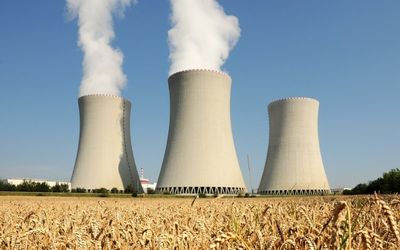
China’s major energy investment is now in renewables. In Germany, nuclear energy employs 12,000 people, while renewables are employing in excess of 370,000, says the writer. Picture: THINKSTOCK
THE Cabinet has endorsed nuclear power, and now the governing party’s secretary-general, Gwede Mantashe, has stated that those who claim SA cannot afford it are "mischievous". Surely, he is missing the point? It is not only a question of whether nuclear energy is affordable, but whether it is right for our nation and planet.
The country clearly cannot afford it, but even if we could, is it good for us? Like smoking, you might think you can afford and enjoy it, but in the long run, it is deadly.
The facts speak for themselves: we need electricity now; nuclear energy can’t provide this, but renewable energy can — at far less cost.
Mantashe’s claim that investing in nuclear now will benefit future generations is also alarming. In 10 years’ time, we will have seen such advances in renewables, funded by private initiative, that nuclear plants will be costly white elephants.
Our children will want to know how we could have misspent so much money, never mind the destruction to land, water and human health caused by uranium mining.
After 60 years, we have still not solved the problem of long-term storage of nuclear waste. The South African Nuclear Energy Corporation now claims it cannot take on the full burden of decommissioning and decontaminating used nuclear material. If the nuclear industry is not responsible, who is? The government? That means us, the taxpayers. The nuclear industry will rake in the profits, while we have to pay for its hazardous waste. The real legacy we will leave is radioactive waste, which cannot be disposed of safely and lasts for thousands of years.
Mantashe also says we don’t speak about the cost of coal. If he met with us, he would know we do indeed — so much so that 67 South African civic organisations opposed the World Bank loan for the Medupi coal-powered station in 2010.
We were accused of being unpatriotic, but the cost of coal is prohibitive in terms of human and planetary health. Neither we nor the planet can afford nuclear or new coal. We can flourish with renewable electricity. Nuclear energy and uranium and coal fuel costs will continue to rise considerably. The costs of renewable installations will continue to fall, with no fuel costs involved thereafter.
In 2011, Italy installed 9GW of rooftop generation in one year, the equivalent of our nuclear ambition, which will take at least 10 years. Had Eskom listened to us and opened up to renewables then, we would not be facing energy shortages now.
We also know that since the Department of Energy launched its renewable-energy programme, wind prices have reduced by half and solar by three-quarters, while new nuclear will cost twice as much per kilowatt-hour.
China’s major energy investment is now in renewables. In Germany, nuclear energy employs 12,000 people, while renewables are employing in excess of 370,000.
We could become a renewables hub for Africa, employing thousands of people in manufacturing and installation. After construction, jobs in the nuclear industry will number a few hundred. Nuclear energy simply does not make sense for SA, with the best of solar and wind resources in the world.
Coming from the faith communities, we believe in the essential goodness of people. We also see the tendency — worldwide — to accrue riches even if this is by underhand methods. We know a deal of this magnitude offers boundless opportunities for corruption. A few of those in power stand to gain immense wealth. The majority of us will be further impoverished.
The government has refused steadfastly to meet with and listen to civil society, faith communities and academic energy experts, while consistently meeting with the nuclear industry. The Southern African Faith Communities’ Environment Institute (SAFCEI) and Earthlife Africa have resorted reluctantly to court action to ensure the government deals responsibly with our future financial, social and environmental wellbeing.
• Bishop Davies is SAFCEI patron


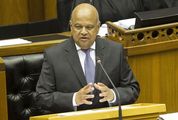

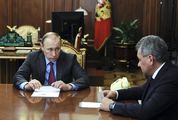
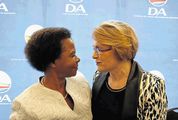


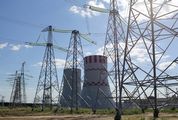

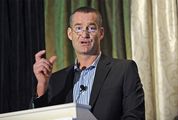
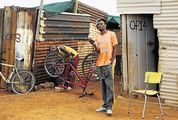
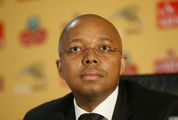











Change: 1.41%
Change: 1.74%
Change: 1.55%
Change: 1.65%
Change: 1.42%
Data supplied by Profile Data
Change: 0.57%
Change: 0.09%
Change: 1.41%
Change: 0.00%
Change: -0.13%
Data supplied by Profile Data
Change: 1.98%
Change: 1.47%
Change: 1.68%
Change: 2.03%
Change: 1.40%
Data supplied by Profile Data
Change: -1.21%
Change: -0.52%
Change: -0.90%
Change: -1.05%
Change: -2.05%
Data supplied by Profile Data